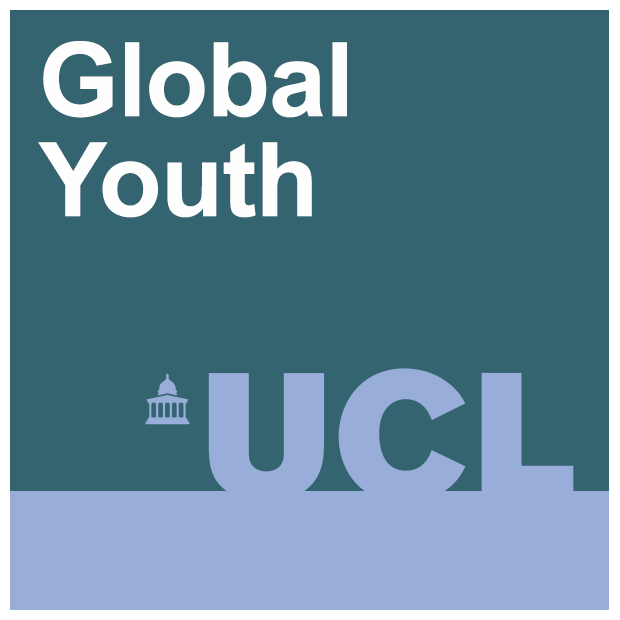Opportunities, aspirations and mobilities for coastal youth: emerging findings
By UCL Global Youth, on 11 November 2022
By Rachel Benchekroun, Thomas Coram Research Unit (TCRU) UCL Social Research Institute
Whilst living on the coast may offer certain advantages, research shows that young people in coastal communities face poorer outcomes in education, employment and health than their peers in non-coastal towns (CMO 2021, HOL 2019, Agarwal et al. 2018, Wenham 2020). But how do young people feel about their coastal towns and their futures?

Image 1: Beach in NE Lincolnshire
We worked with young people from Grimsby and Cleethorpes to research this further. Six Young Researchers co-designed the research, interviewed residents, and helped analyse the data. Throughout the process, the Young Researchers were also supported by Pippa Curtin (the Voice and Influence Co-ordinator, North East Lincolnshire Council) and local lead for Young Advisors. Together we’ve been discovering how young people feel about their towns, their views on the opportunities available to them, and their aspirations for themselves and their towns.
Across two linked projects in 2021 and 2022, we carried out interviews and focus groups with a total of 39 young people aged 16 to 25. We also interviewed 30 older people aged over 60 to compare their experiences of growing up in the local area in earlier decades. We used participatory methods such as mapping, photo elicitation, life maps and a community walk.
Here is what we found out about young people’s perceptions and aspirations.
Move, return or stay?
Most of the 16- to 18-year-olds we interviewed felt they needed to move away to a larger town or city to access higher education, develop specialized knowledge and skills, and find a well-paid job: ‘The jobs that we want to do, we can’t really do here.’
This was especially important to young people considering professions – such as law, medicine or academic research – as well as roles in the creative sector. We refer to this group as ‘movers’.
For young people like 17-year-old Alex, the lack of local opportunities for certain kinds of career, and the relative geographical isolation of Grimsby and Cleethorpes, meant they would need to move to a bigger town or city:
‘You’ve got to go into the city, specifically London, to be able to participate in [specialised] jobs. And that is something we are lacking as a coastal town, kind of on the edge of everything. We are too far away from London – which I think is such a disadvantage.’

Image 2: ‘Future life map’ created by Katy, aged 17
Many young people saw moving to a city as the only way to achieve their personal and professional goals. Some even planned to move abroad to develop their careers. This can be seen in the ‘future life map’ created by Katy, aged 17 (see Image 2).
Several young people were clear that once they moved away, they would not return to their coastal town: (‘I can confidently say that I don’t wanna come back.’). For a small number, however, moving away was necessary only to develop skills that they intended to bring back for the benefit of the community, for example in the role of youth worker or teacher. This group, whom we refer to as ‘returners’, seemed to be motivated by values of social justice. For example, Kayla (18), told us:
‘I just want to help the youth of Grimsby and to show that no matter where you’re from or no matter what background, you can always make something of your life and do amazing things. […] We shouldn’t have less opportunities just because we’re at this end of the country or just because we’re in this postcode, do you know what I mean? We all deserve the same opportunities, not just the bigger cities.’
A third group of young participants (‘stayers’) were those who did not plan to move away, whether temporarily or permanently. Several, like Lisa (18), had actively decided to stay:
‘I think I like living here, and I just don’t think I really want to move away and be that far away from my family. I feel like there’s what I need here to like progress with my life rather than moving away.’
For these young people, maintaining regular contact with their family and other support networks was important, and they felt they could achieve their education and career plans locally.
Other young people were vague about their future plans – perhaps because of uncertainty about whether to continue with post-compulsory education, what kind of job or career they hoped to do, or what the pathway to achieving this looked like.
Our research has shown that experiences of growing up in Grimsby and Cleethorpes have changed significantly since the 1950s and 1960s. When older residents were teenagers, there had been plenty of local well-paid work for school-leavers, so the majority of young people stayed in the local area – and felt a strong sense of belonging. But changes to the local economy in recent decades mean that local jobs for young people nowadays are more likely to be precarious and low paid. The marginal location of coastal towns, limited transport networks and the availability of resources, including support networks, intersect with the realities of the local economy to shape young people’s decisions about whether to move away, return, or stay put. This has implications both for the futures of young people and the future of their coastal communities.
This research was funded by UCL IOE Seed Funding, UCL Grand Challenges and the Pro-Vice Provost (UK). These findings are taken from our forthcoming Emerging Findings report, which will be published next week.
 Close
Close



